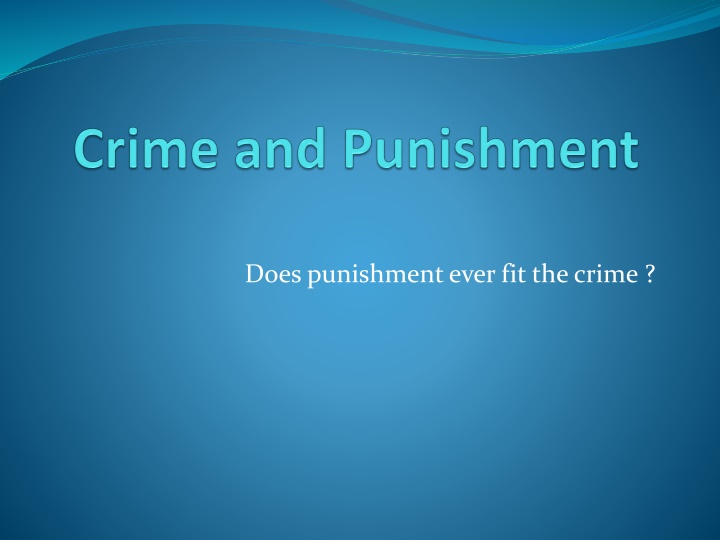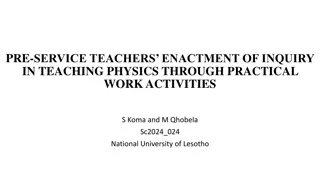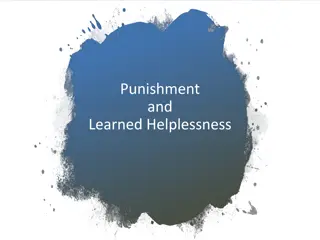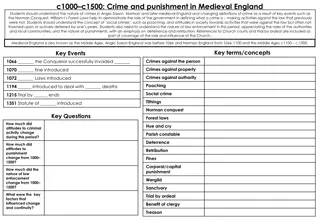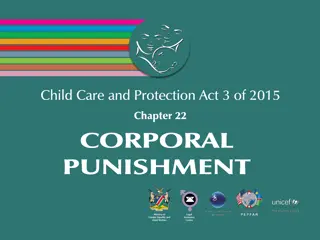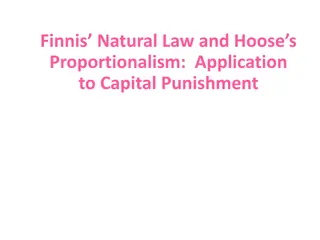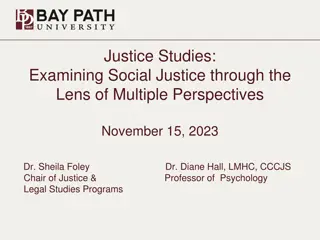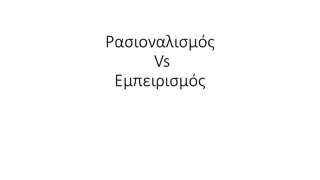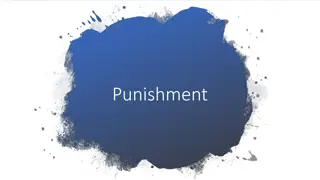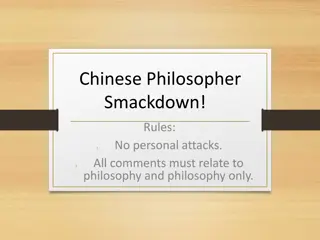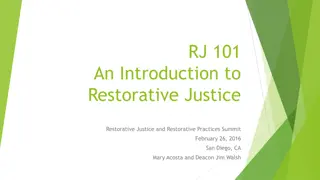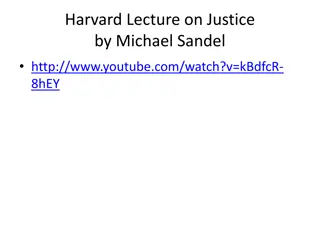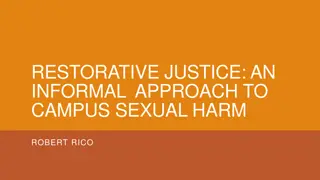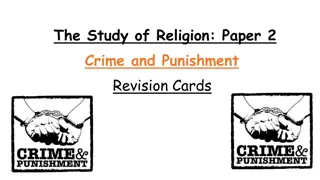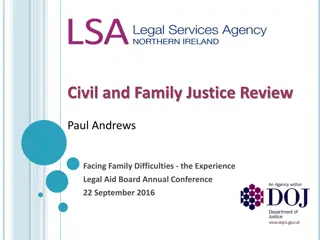Reflections on Punishment and Justice: A Philosophical Inquiry
Delving into the intersection of punishment, morality, and justice, this thought-provoking exploration questions the concept of proportionate punishment for crimes committed. It challenges conventional notions of retributive justice and poses ethical dilemmas related to the effectiveness of the criminal justice system. The discourse navigates through examples of individuals who have caused immense harm, raising fundamental queries about the moral dimensions of inflicting pain and the efficacy of punitive measures.
Uploaded on Sep 14, 2024 | 2 Views
Download Presentation

Please find below an Image/Link to download the presentation.
The content on the website is provided AS IS for your information and personal use only. It may not be sold, licensed, or shared on other websites without obtaining consent from the author.If you encounter any issues during the download, it is possible that the publisher has removed the file from their server.
You are allowed to download the files provided on this website for personal or commercial use, subject to the condition that they are used lawfully. All files are the property of their respective owners.
The content on the website is provided AS IS for your information and personal use only. It may not be sold, licensed, or shared on other websites without obtaining consent from the author.
E N D
Presentation Transcript
... those who commit certain kinds of wrongful acts, paradigmatically serious crimes, morally deserve to suffer a proportionate punishment; ... it is intrinsically morally good good without reference to any other goods that might arise if some legitimate punisher gives them the punishment they deserve ... Stanford Encyclopaedia of Philosophy
But 1. What if a transgressor genuinely has no conscience, no sense of having done wrong, no moral capacity that can be reached or moved by the experience of suffering? What moral outcome is achieved under these circumstances, and 2. What proportionality exists between the deliberate infliction of endless suffering on and the slaughter of millions of people, including children, and the relatively painless forfeiture of your own life?
Example 1. Eichmann said towards the end of the War that he would "leap laughing into the grave because the feeling that he had five million people on his conscience would be for him a source of extraordinary satisfaction." What did Eichmann forfeit? What did he suffer? Example 2: People who systematically inflict pain on children, including their own children. Example 3: People responsible for gross acts of animal cruelty. Example 4. Women who give birth to infants with Foetal Alcohol Syndrome, often repeatedly. Example 5. Oscar Pistorius
Punishment is the deliberate infliction of pain. How can there be any moral content in respect to an act of the deliberate infliction of pain?
How effective is the current retributive criminal justice system? There were 15 609 murders in 2011/12 and 16 259 murders in 2012/13 The prison population is 165 987. South Africa has the world's seventh highest number of prisoners - outranking countries with up to nearly five times its population SA has the most prisoners in Africa. Rwanda, the second highest, has half the number There are also 11 500 people in SA's jails simply because they are too poor to pay for bail
And inmates serving life sentences rose from 793 in 1999 to a current figure of 7 574. The latest figures show that it costs R69 000 annually to house a prisoner.
Suggestion We should launch a post- punishment era All justice should be based on restoration
